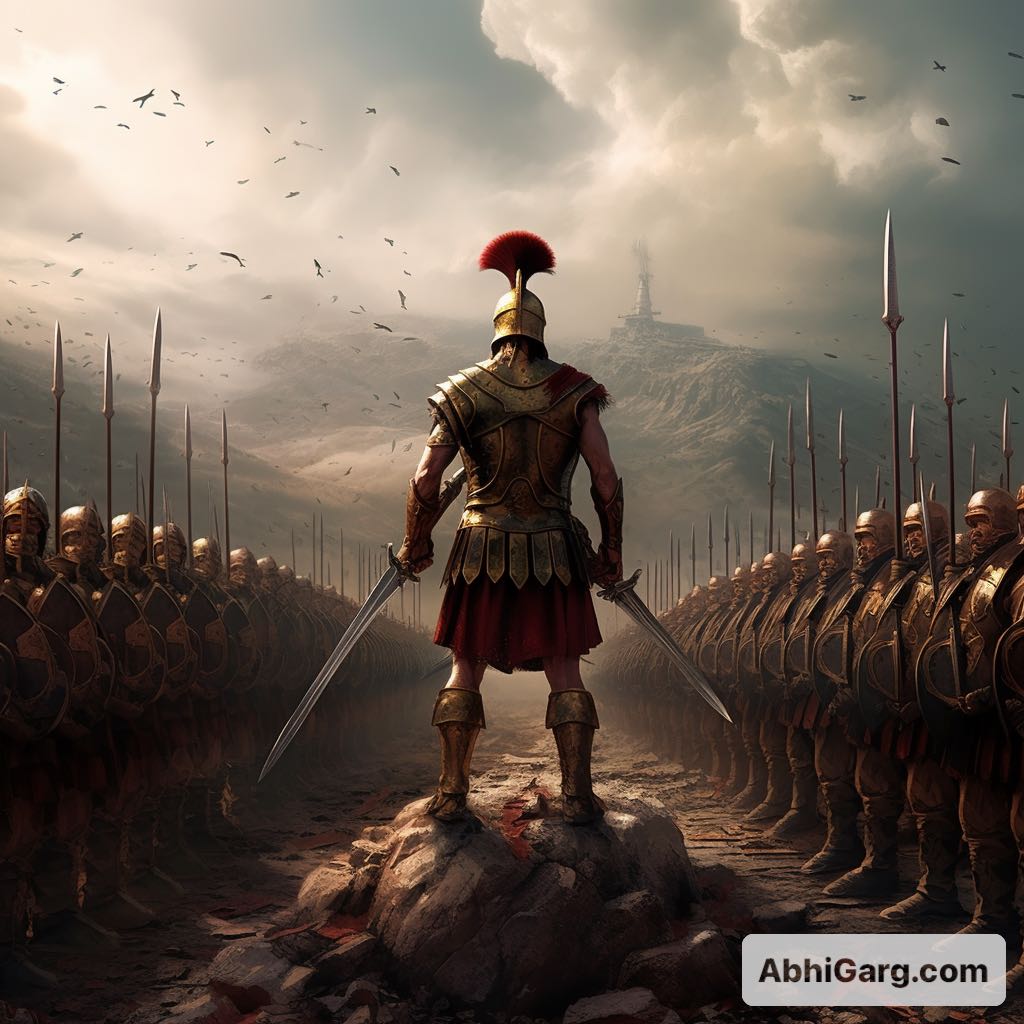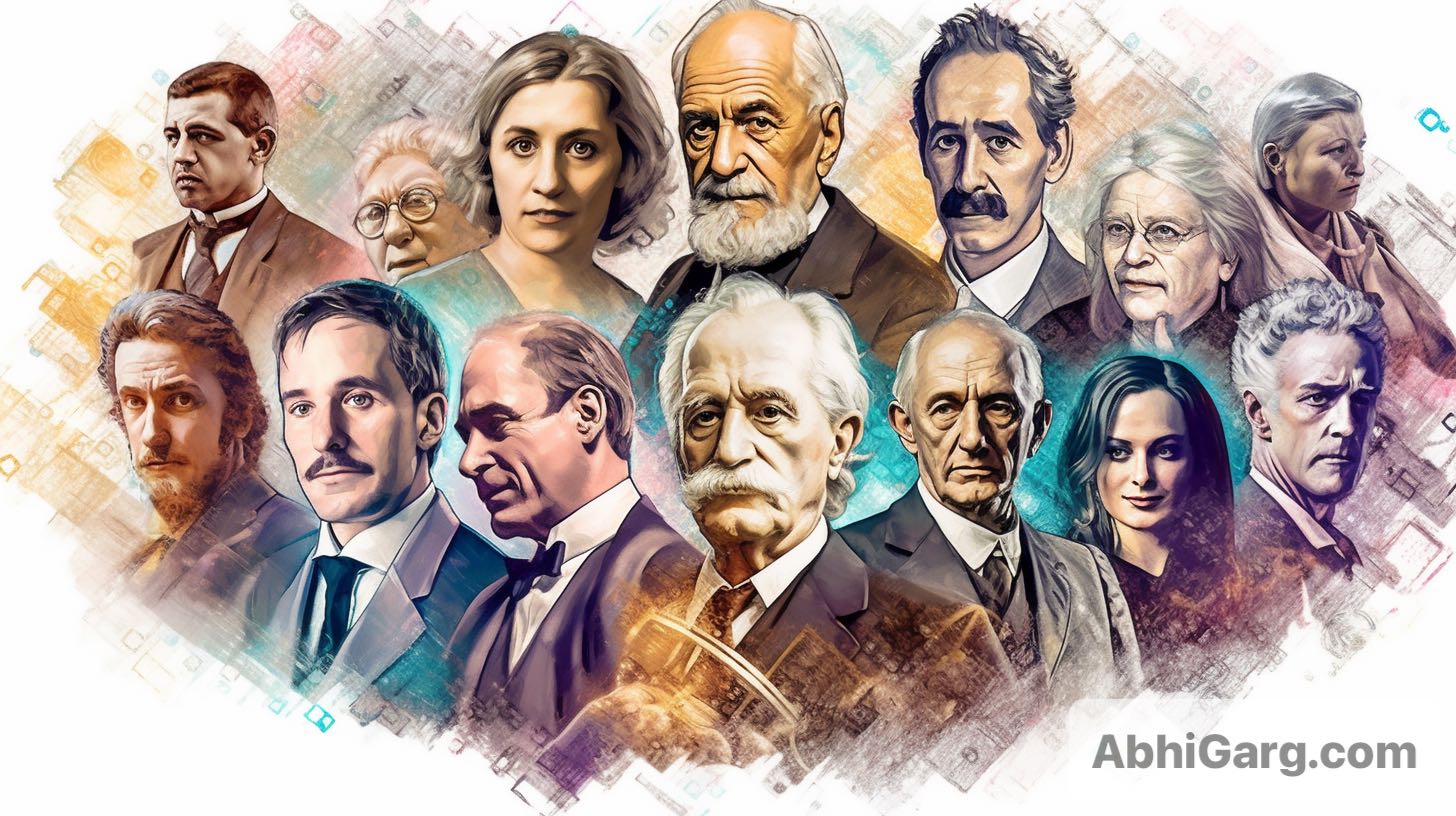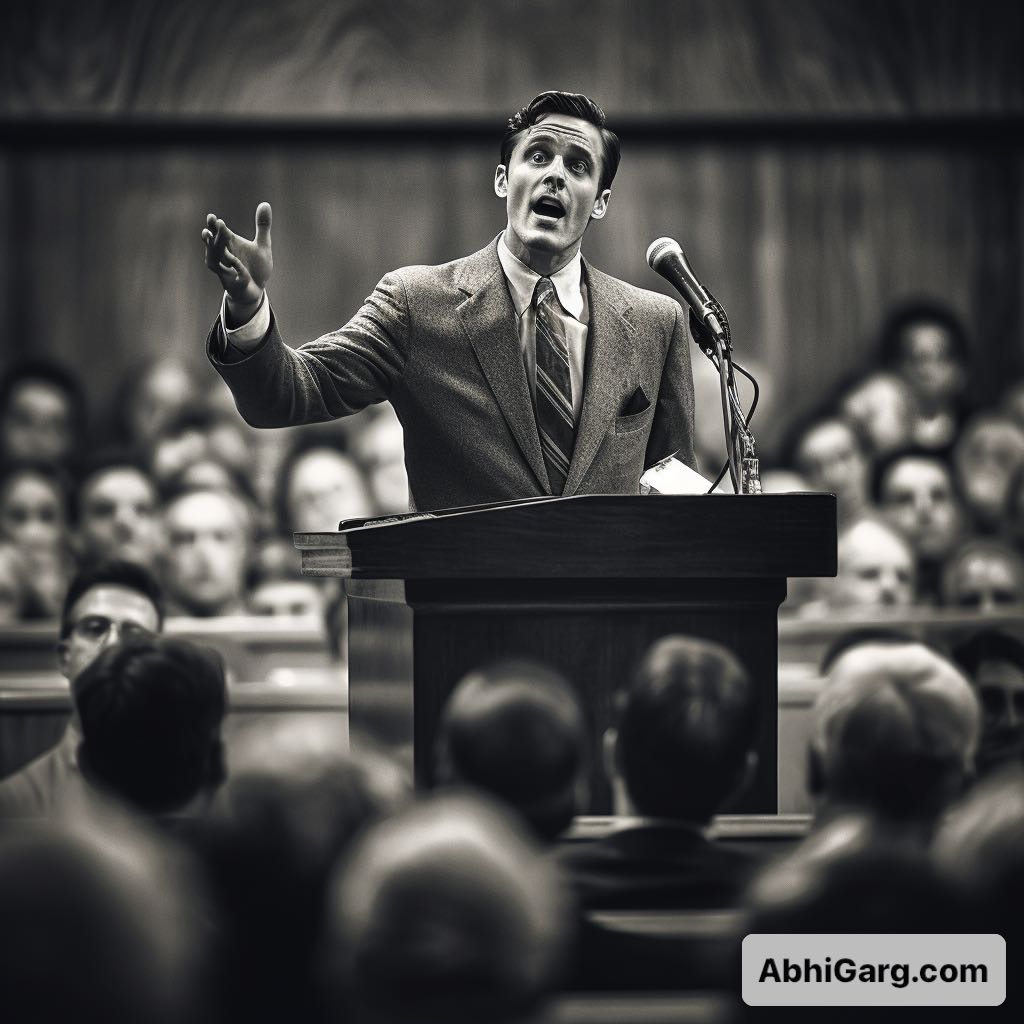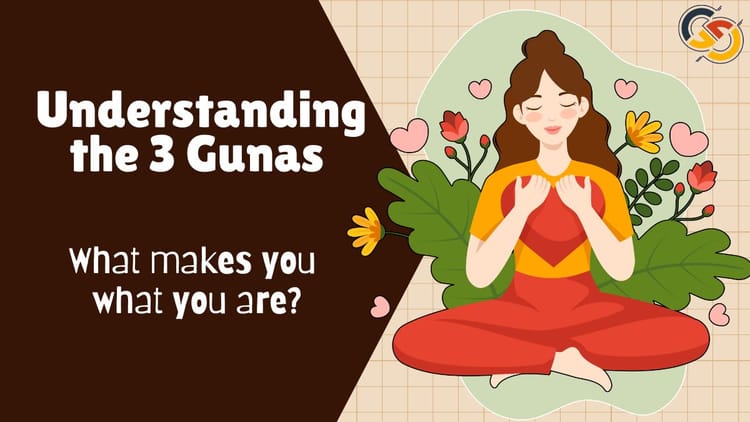What Makes Someone Great? A Journey Beyond Goodness

Greatness—a term we often use yet seldom truly understand. When people discuss the notion of greatness, it's all too easy to conflate it with goodness. You know, the familiar tale: a great person must be a paragon of virtue, a pillar of morality, a beacon of righteousness. But let's pause and give this a second thought. Is greatness just an upgraded version of being good? Spoiler alert: it's not.
The journey to understand greatness is somewhat like a rollercoaster—thrilling yet terrifying, filled with highs and lows. Imagine two distinct tracks. One is a seemingly straight path, smooth and gentle, representing the happiness we might find in mediocrity. A safe, secure life where one's small joys accumulate into a content existence. The other track is a turbulent course, filled with gut-wrenching drops and dizzying heights, symbolizing the relentless desire that often accompanies grief and personal struggle. The riders on this track experience both the intoxicating highs of success and the crushing lows of setbacks.
This multi-faceted concept extends beyond the basic dichotomy of good versus evil or happiness versus sorrow. Greatness is not a monolith; it's a rich tapestry woven from the threads of moral ambiguity, personal sacrifice, and the ever-elusive human emotions of happiness and grief.
Understanding the Notion of Greatness
If you've ever tried to grab hold of water, you'll know it's an elusive endeavor—much like pinning down the exact definition of "greatness." So, let's wade through the various interpretations that society, literature, and even philosophy have offered us.
Defining Greatness
'greatness' is often presented as an aspiration, the pinnacle of achievement. In sports, it may be associated with sheer skill or the number of championships won. In business, it could relate to innovation or market influence. Even in everyday life, we hear the term applied liberally, from 'great parents' to 'great friends.’
It’s no wonder the definition gets muddled when it serves so many masters! Philosophers might argue that greatness encapsulates virtues like wisdom, courage, and justice. Meanwhile, historians might emphasize the impact one leaves on society or the world.
Greatness vs. Goodness
But let's break away from the often mistaken equivalence of greatness to goodness. Being good often implies a moral disposition, a tendency to do what is right or virtuous. Greatness, on the other hand, doesn't always wear the halo of morality. It's a measure of impact, influence, or mastery in one's chosen field; moral fiber is optional.
Take historical figures like Alexander the Great or Steve Jobs. Both were undeniably great in what they achieved—conquering vast territories and revolutionizing technology. However, their moral compasses were often called into question. Alexander was responsible for widespread destruction and loss of life, and Jobs was often criticized for his ruthless business tactics and interpersonal relationships. Were they good? That's debatable. Were they great? Absolutely.
In sum, greatness is an intricate blend of capabilities, actions, and impact, which may or may not overlap with moral goodness. It’s like expecting every 'great' wine to be 'good' for your health—a comforting thought, but not necessarily true. As we venture further into this discussion, remember that the line between greatness and goodness is not just thin; it’s often blurred, making each one an entity of its own.
The Happiness Paradox
Ah, happiness—the age-old pursuit that sends us scrambling for anything that promises even a whiff of it. We’re told happiness is the pinnacle of human experience, but what happens when our journey for it lands us squarely in the realm of mediocrity?
The Pursuit of Mediocrity
Let's put this in perspective: some people find their bliss in a 9-to-5 job, a tight-knit circle of friends, and a collection of small joys like a freshly brewed cup of coffee or a glowing sunset. This comfort zone is often branded as ‘mediocrity’ by society. However, these individuals may live fulfilling lives, replete with moments that make their existence worthwhile. This raises the question—can mediocrity be its form of greatness?
It's a provocative idea. If greatness is defined by personal satisfaction and well-lived life, these content souls could be described as 'great' in their own way. However, mediocrity falls short if we consider greatness as a measure of significant impact or less ordinary life. It’s like comparing a cozy bed-and-breakfast to a five-star luxury resort; both have their merits, but only one is deemed 'great' in the grand scheme.
The Happiness Trap
Now, let's address the elephant in the room: the misconception that greatness equates to happiness. History is littered with people who've achieved extraordinary feats yet struggled with personal demons. Consider the likes of Ernest Hemingway and Virginia Woolf—both literary giants whose works have shaped modern literature. However, beneath the veneer of their professional greatness lay complex emotional landscapes that included bouts of depression and, ultimately, tragic ends.
Another poignant example is the late NBA star Kobe Bryant. He achieved unparalleled greatness on the basketball court but was not a stranger to personal controversies and challenges that questioned his overall life happiness.
These narratives serve as cautionary tales against tethering the idea of greatness too closely to happiness. Greatness often demands sacrifices, be it personal time, relationships, or even mental peace.
To sum it up, as alluring as it might be to link happiness and greatness, they are two different avenues on the roadmap of life. Like those forks in the road that keep you guessing, choosing one doesn't necessarily lead you to the other. So the next time someone tells you that greatness is the key to happiness, take it with a grain of salt—or maybe the whole salt shaker.

Grief and the Relentless Desire for More
Ambition is often viewed as the locomotive driving the train toward greatness, but what if I told you that this engine tends to overheat? Enter the complex interplay between relentless desire, greatness, and grief.
The Double-edged Sword of Ambition
Ah, relentless desire—the fiery fuel that has propelled many to stratospheric heights of greatness. Think Elon Musk's never-ending ambition to colonize Mars or Serena Williams' insatiable appetite for Grand Slam titles. However, this same unquenchable thirst can also bring about considerable personal grief. Musk has discussed the grueling work schedules and personal sacrifices, including his emotional well-being, to make his dreams a reality. Similarly, Williams has endured physical injuries and emotional heartbreaks on her journey to becoming one of the greatest athletes ever.
The moral of the story? Relentless ambition is like playing with fire. It can forge greatness in the crucible of its intensity but also consume you. It's a double-edged sword that can carve a path to extraordinary achievements while potentially severing the ties to one’s happiness and well-being.
Grief as a Catalyst
Now, let's flip the script and examine grief—not as a byproduct of the quest for greatness but as the catalyst for it. A quintessential example would be Abraham Lincoln, whose life was fraught with personal losses and professional failures. From losing his mother at a young age to failing in business and politics, grief was his constant companion. Yet, these hardships imbued him with the empathy and resilience he needed to lead a fractured nation through its darkest hour—the Civil War—and make monumental strides in abolishing slavery.
Another noteworthy case is that of J.K. Rowling, the author of the Harry Potter series. Before she enchanted the world with her tales of wizardry, she was a struggling single mother grappling with the recent loss of her mother. The grief she experienced became a creative force that helped her construct a magical universe that has touched millions of lives.
So, is grief a prerequisite for greatness? Not necessarily. But as these examples illustrate, it can serve as a powerful impetus, a sort of emotional alchemy that turns the base metal of suffering into the gold of greatness.
In essence, the relationship between relentless desire, grief, and greatness is a complex tapestry, one that's intricately woven with threads of ambition, sacrifice, and personal struggle. Like a critically acclaimed drama, it has its soaring highs and devastating lows, but oh, what a compelling story it makes!


Were they all great?
The Ethical Dimensions of Greatness
Hold onto your seats, ladies and gentlemen, because we're diving into the turbulent waters of ethics—where even angels fear to tread when discussing greatness. Ah, the ethical dimensions, the areas so gray that they make a foggy London day look clear and sunny.
Moral Ambiguity
Striving for greatness often takes one through murky ethical waters. For example, let’s consider the tech titans of Silicon Valley. Companies like Facebook and Google have undoubtedly achieved great things by connecting billions of people and organizing the world's information. But let's not forget the ethical tightropes they've walked on, such as data privacy concerns and potential monopolistic behavior. Similarly, great artists like Picasso have left an indelible mark on the world of art but have often been criticized for their questionable behavior in personal relationships.
When we chase greatness, it's easy to adopt a tunnel vision focus on our goals, occasionally turning a blind eye to the ethical considerations that fall by the wayside. After all, the annals of history are often more forgiving to winners, giving them the proverbial "artistic license" to blur ethical lines.
The Cost of Greatness
This begs the question: Can the pursuit of greatness justify moral compromises? Well, the answer is as straightforward as a maze. Some argue that the ends justify the means, especially if the result benefits a greater good. Yet others staunchly defend the sanctity of ethical conduct, insisting that no level of greatness can make up for moral shortcomings.
In reality, the true cost of greatness can be steep. It might involve ethical trade-offs that either serve a bigger purpose or tarnish the greatness one seeks to achieve. Imagine a scale, one side holding the weight of your ambitions and the other holding your ethical values. Striking a balance is a formidable challenge, akin to walking on a tightrope—a rope that, mind you, is often as thin as a strand of moral fiber.
So there you have it, the ethical landscape of greatness—a terrain so rife with dilemmas that it would give even Socrates a headache. But navigate it we must, for it's an integral part of the enigmatic journey toward achieving true greatness.
The Impact of Greatness
As we close the curtain on our discourse about greatness, let's zoom out and consider its ripple effects on society. Ah yes, greatness isn't an isolated island; it's like a stone tossed into a pond, creating waves stretching far and wide.
Social Repercussions
The impact of one person's greatness can be felt on a societal scale and often changes the course of history. Consider how Martin Luther King Jr.'s pursuit of civil rights shaped an entire movement that transformed American society. His greatness reverberated throughout communities, sparking change and offering a platform for marginalized voices.
Conversely, pursuing greatness can sometimes lead to negative social consequences. The pharmaceutical industry offers us an example: the greatness of developing life-saving drugs sometimes clashes with the unaffordable prices set for these medicines, creating a social dilemma.
Individual Legacy
When the dust settles, greatness usually leaves behind a legacy—be it positive or negative—that endures long after the individual has exited the stage. For example, Steve Jobs’ relentless ambition led to revolutionary products that changed how we interact with technology. His legacy is etched into every swipe and tap on our touchscreen devices.

However, not all legacies are sugar, spice, and everything nice. Take someone like Richard Nixon, whose political greatness is forever marred by the Watergate scandal. His legacy is a cautionary tale in political circles, highlighting the perilous path to which an unchecked pursuit of greatness can lead.
Case Studies
It’s time for some real talk—literally.
Mother Teresa: Known for her selfless service to the impoverished, her greatness lies in her compassion and commitment to humanitarian causes.
Albert Einstein: A physicist whose theories altered our understanding of space-time, his greatness in the scientific community is unparalleled.
Oprah Winfrey: A media mogul and philanthropist, her greatness stems from her influence and ability to inspire millions through her stories and platforms.
Walt Disney: The mastermind behind the most famous mouse in the world, his greatness in entertainment has created a cultural empire that continues to enchant audiences globally.
Genghis Khan: An example of greatness that’s far from universally 'good,' his military conquests were extraordinary but came at a tremendous human cost.
Each of these individuals showcases a different facet of greatness, demonstrating that it's not a one-size-fits-all concept. Like a well-cut diamond, greatness has multiple sides, each reflecting a unique pattern of light and shadow.
Conclusion
Let's take a moment to catch our breath and reflect on the landscape we've traversed. As we’ve seen, greatness is not some cookie-cutter concept you can neatly package with a bow. It's a complex, multi-faceted phenomenon that defies simplistic definitions. It's a Da Vinci painting, filled with layers of meaning, shadow, and light. That mystery novel keeps you up at night, always one step ahead of your deductions.
The journey toward greatness is akin to walking through a maze with no exit; it can be laden with the happiness of personal contentment or the grief born from relentless desire. It might even require you to dabble in the murky waters of ethical ambiguity, navigating the treacherous straits between moral integrity and compromise.
Whether you find greatness in the simple joys of everyday life or the grand achievements that rewrite history, remember that its essence will vary from person to person. Like chefs in a gourmet kitchen, we each have our recipe for greatness, spiced with individual choices, sacrifices, and experiences.
So the next time you ponder what makes someone great, pull up a chair and get comfortable—because it's a question that invites debate, introspection, and a wide variety of answers.



